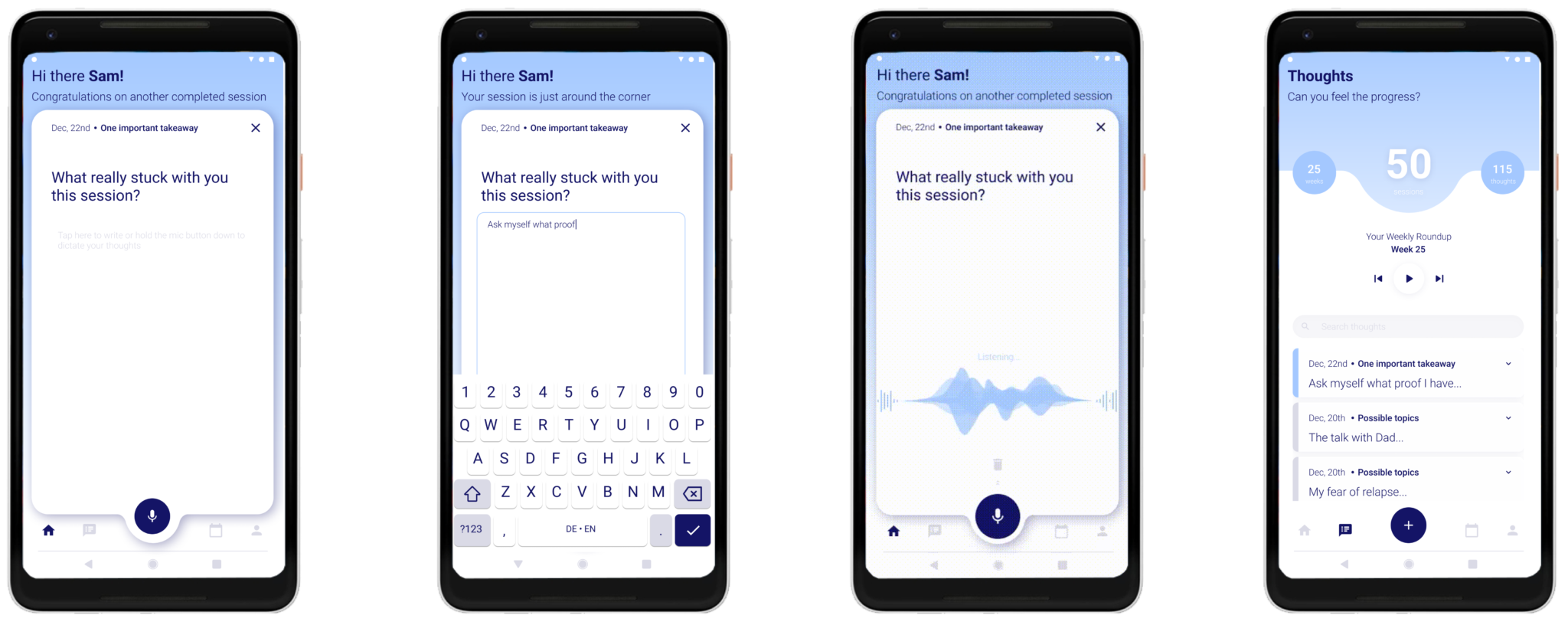liminal
Improving the Remote Therapy Experience for People with Depression

Bachelor Project 2021
Solo graduation project
Duration
6 months
Supervisors
Prof. Nils Krüger & Prof. Lucy Norris
liminal
Improving the Remote Therapy Experience for People with Depression
Depression is one of the most widespread but often underestimated and stigmatized diseases, despite the availability of good treatments and therapies.
With the Covid-19 pandemic as a catalyst, teletherapy has abruptly become the new norm of therapeutic care. However due to a lack of experience on both the therapist’s and the patient’s side new problems have arisen, and only makeshift solutions were provided.
Liminal serves as a platform to provide unused car-sharing cars as appropriate, private, and accessible spaces for therapy sessions, as well as an interface between therapist, patient, and space to not only provide the patient with the therapeutic ritual framework they need, but also optimize it for the evolving setting.

The Users, The Challenge & The Context
Liminal’s main user group are individuals with depression who are unable to participate in in-person therapy.
Either they are forced to do their therapy remotely due to external influences or due to personal circumstances such as relocation, limited mobility, insufficient time, or irregular working hours.
If users then choose to attend their therapy remotely, they will face disease-related, location-related, and technical issues. The indispensable routine framework of in-person therapy is lost, in shared living situations the user is faced with privacy and security issues and both the surroundings and technical devices of the user pose a constant distraction.
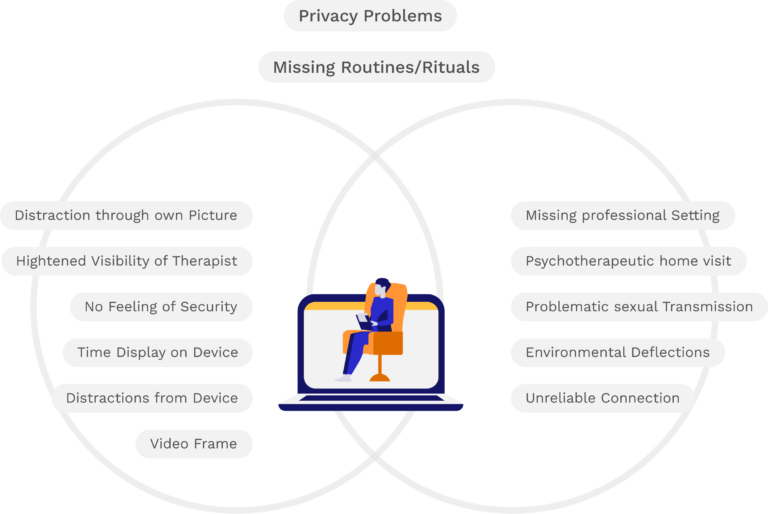
The Approach & The Goals
With the car sharing car as a new therapy setting and considering the remote therapy problems, I was able to formulate the following goals for the project: Patients should be enabled to have a regular routine before and after therapy sessions again without the burden of taking care of their appropriate setting by themselves, the communication between therapists and patients should be supported and the classical videocall interface should be adapted according to the needs.
In my project, the app serves as the central interface for communication between patients, therapists and interaction with the rented car. The app as interface then allows to use the interface interaction as a guide through the new remote therapy ritual and to link the individual phases seamlessly with each other, as follows.

Support of the therapy ritual

Access to car sharing car

Communication
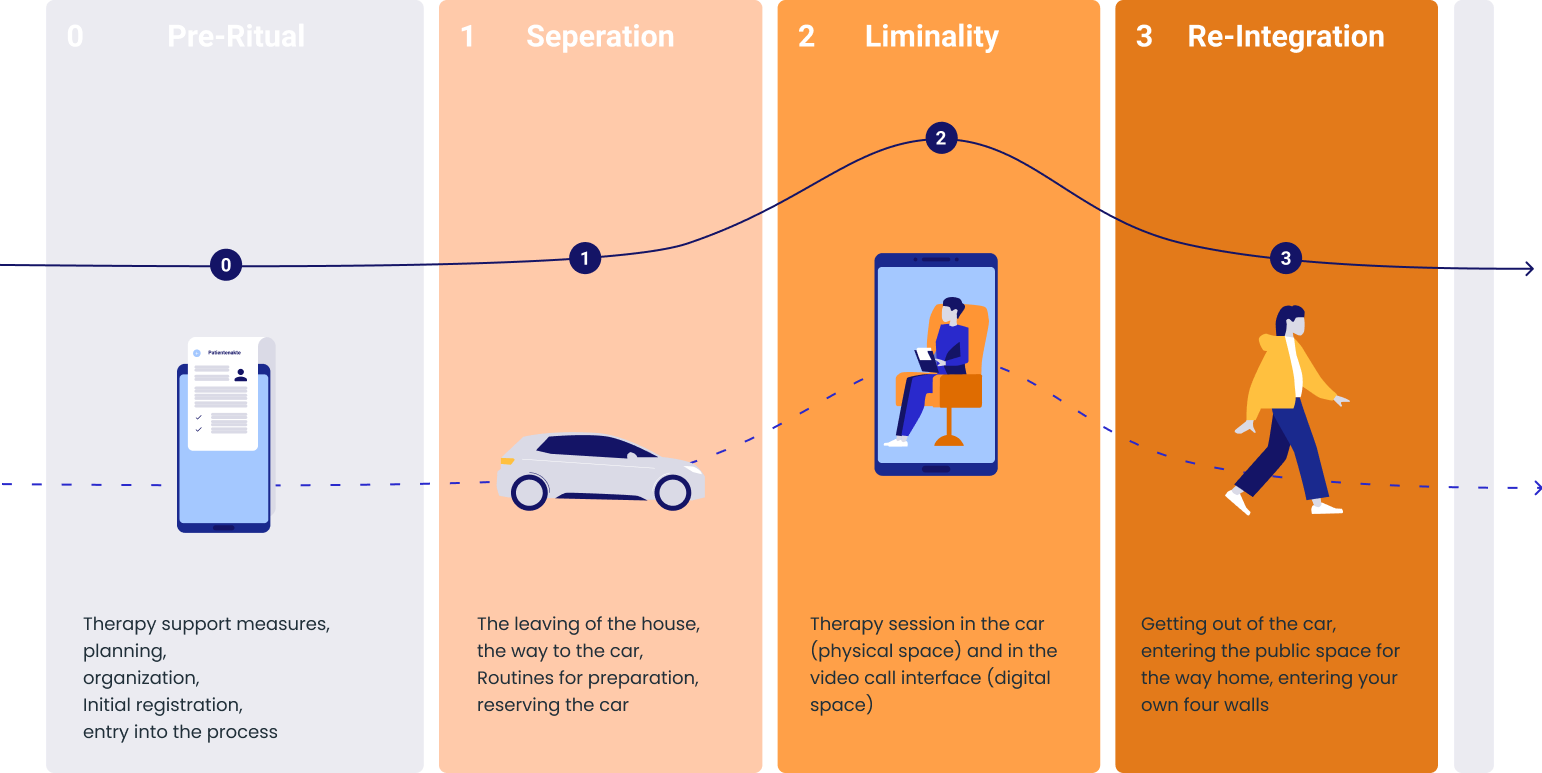
The Solution - A smooth routine
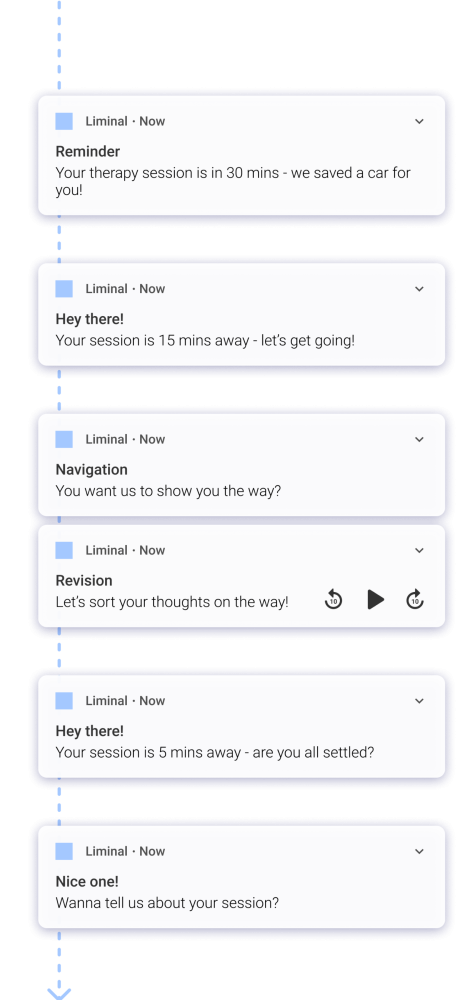
1. The App Flow
Liminal uses knowledge shared via preferences to remind users of the therapy session itself and practical to-dos or actions that become necessary in the course of the process through intelligently timed reminders. In this way, people arrive at the new therapy setting safely, on time, and prepared.
Opening the Reminder then takes one to the app’s homescreen, which gives an overview of the progress in the process, the current action and the background activities of the app.
The action fields, are cards that remind users of the next action at a glance. For power users who already know exactly what is pending for each action, there is the option by right swiping to confirm the action as completed and be taken directly to the next action.
The fulfillment of the actions then directly affects the process display. It combines progress in the actions with the time remaining until the therapy hour.
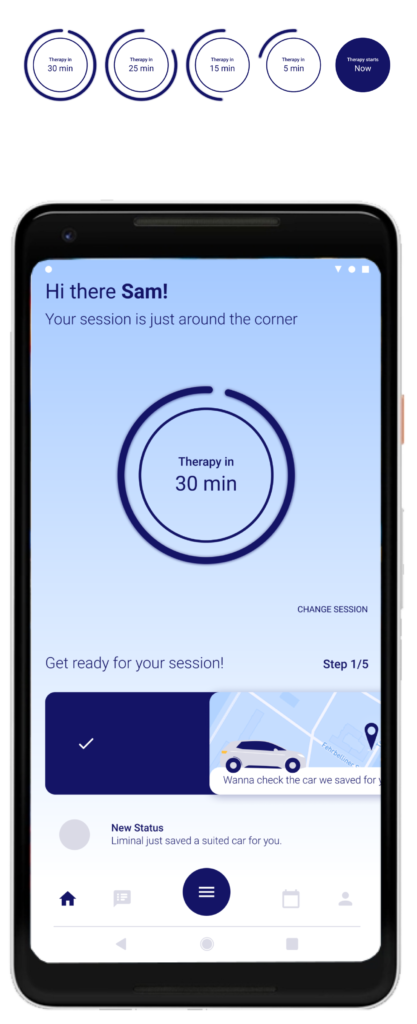
2. Easy Onboarding
While the user is on the way, the reserved car downloads the interior-specific user preferences via a fleet cloud data center shared with the carsharing provider.
Onboarding is designed to be as simple, welcoming and confidence-inspiring as possible, and therefore uses the pre-existing connection of app and car to send a visual signal to the user once the correct car has been reached, followed by a simple automatic unlock through either the smartphone’s NFC or ultra-wideband signature and a launch of the initial interior preference settings for a welcoming gesture from the car
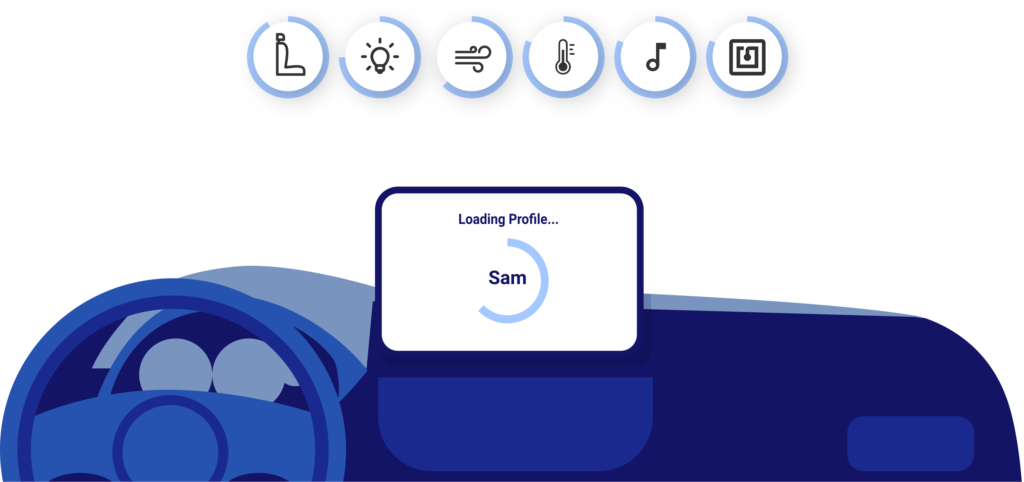


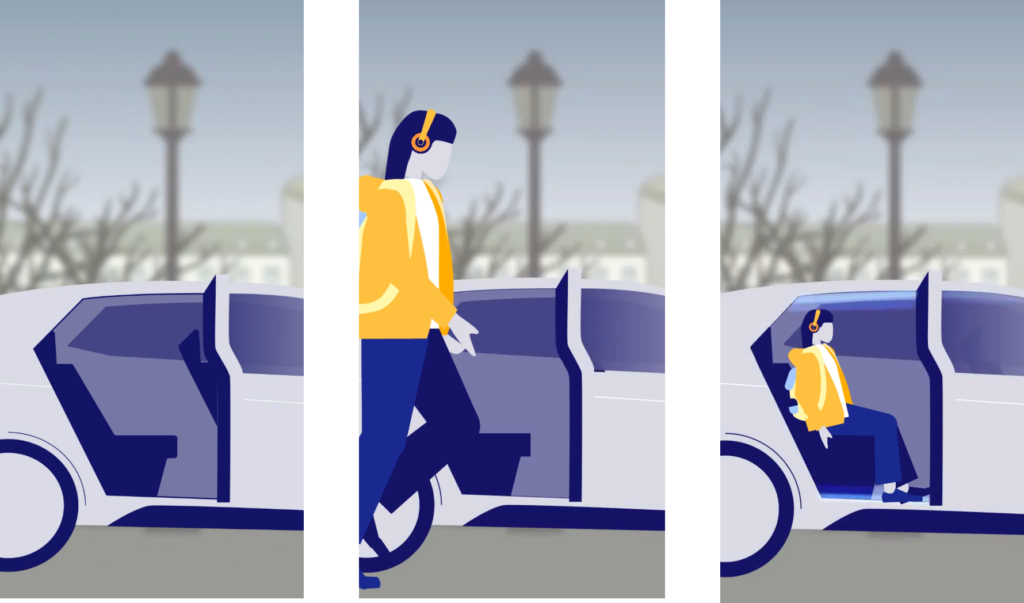
3. Privacy Features
After the door has closed again behind the patient, not only does the car rental begin automatically, but also the privacy settings.
These include automatically darkening the windows if they are not already darkened by default and using the car’s sound system to create a subtle whitenoise soundscene that blocks out outside noises and screens out snippets of therapy conversation.
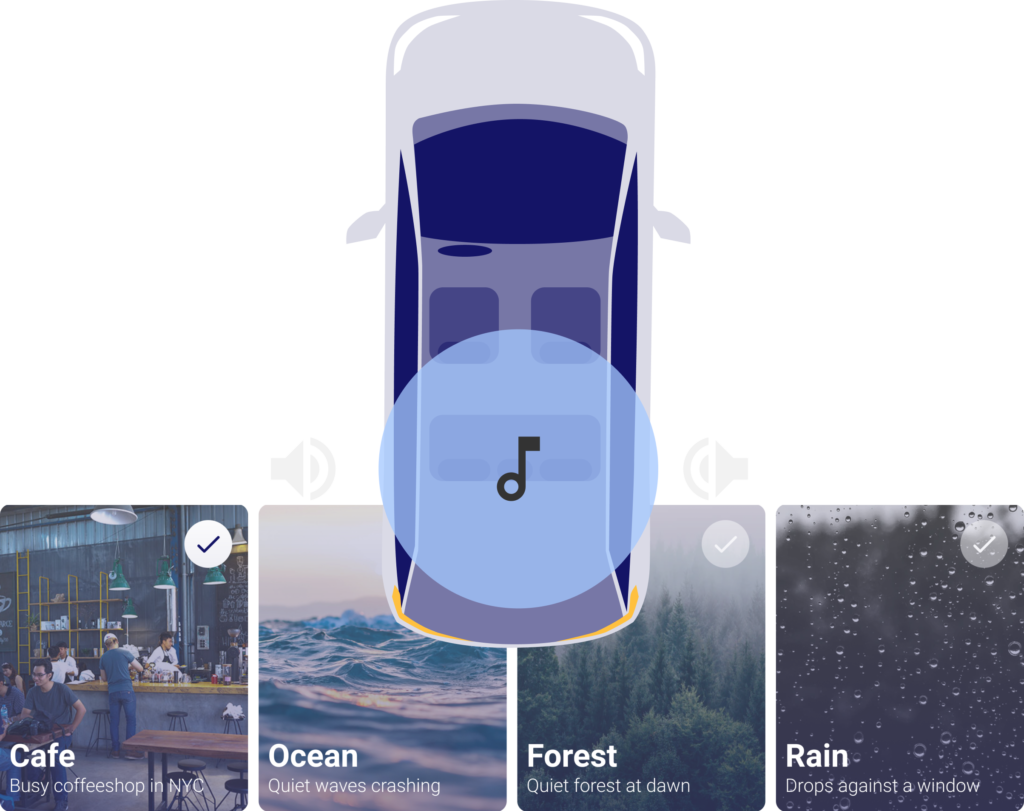
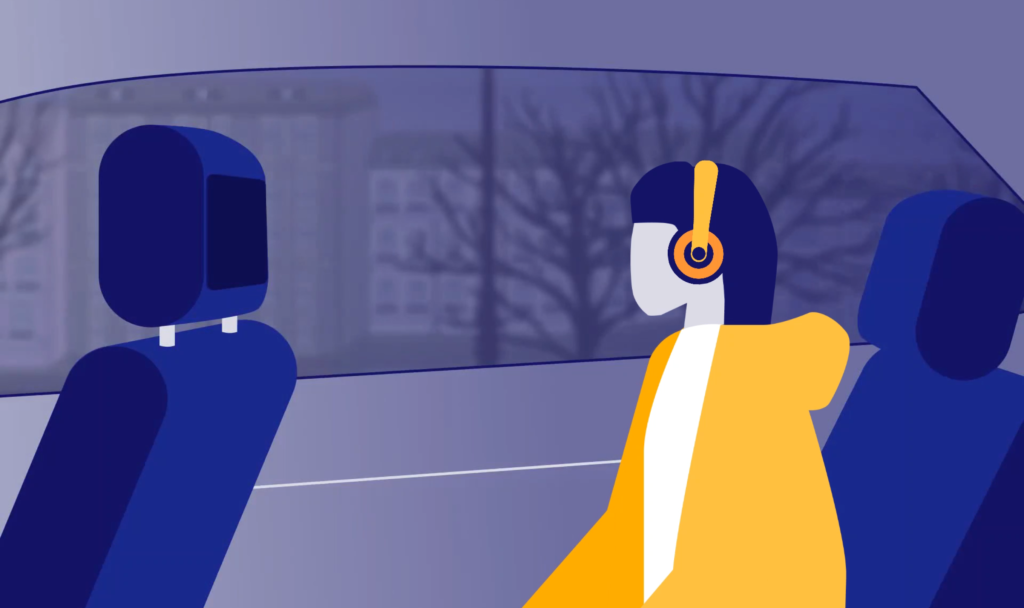
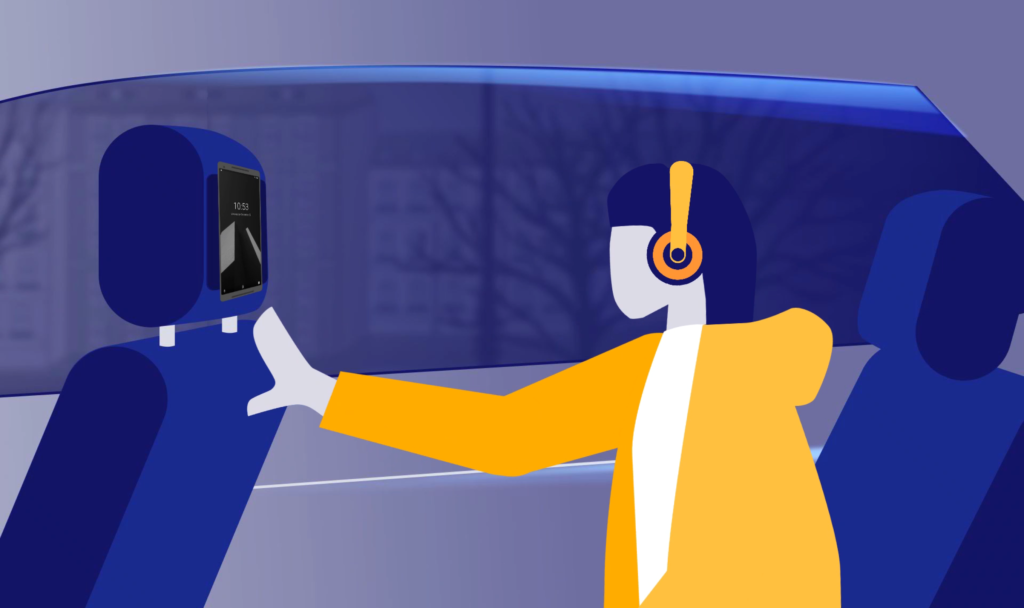
4. Automated Comfort
To prevent the user from having to hold the phone constantly, the battery from failing in the middle of a session, or changing lighting conditions from having an inconvenient effect on the video quality, I propose a built-in compact solution for the headrest opposite the user, which includes a magnetic induction charging surface and a built-in LED panel similar to a ring light.
This setup allows a quick visual optimization of the video feed. Image detail and illumination can be automatically corrected by liminal by first analyzing the video image and then controlling the backrest to change the angle and the LED panel to illuminate the person’s face in such a way that the exposure and contrast in the feed are correct.
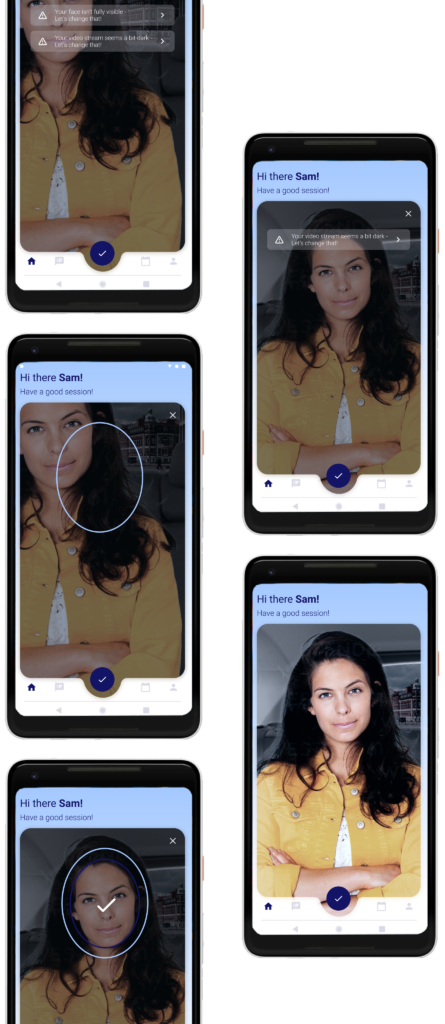
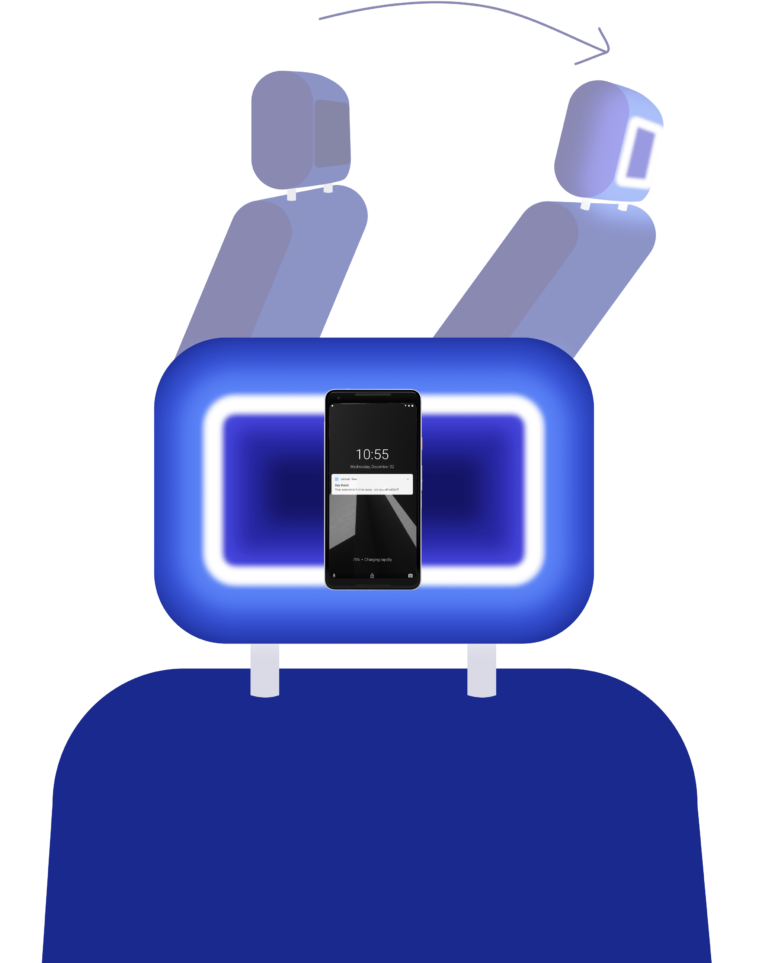
5. Calling your Therapist
The video call interface has been adapted to the conditions of the therapy session. By default, the patient’s and therapist’s own image is hidden to avoid distractions, the patient has the option to switch to a full-screen mode in which no external notifications arrive, and time information is completely omitted.
The lack of time information serves to create a sense of timelessness in the conversation. Instead, the ambient light is used for a gentle entry and exit from the hour, which dims down at the beginning of the call and slowly dims up again towards the end of the hour.
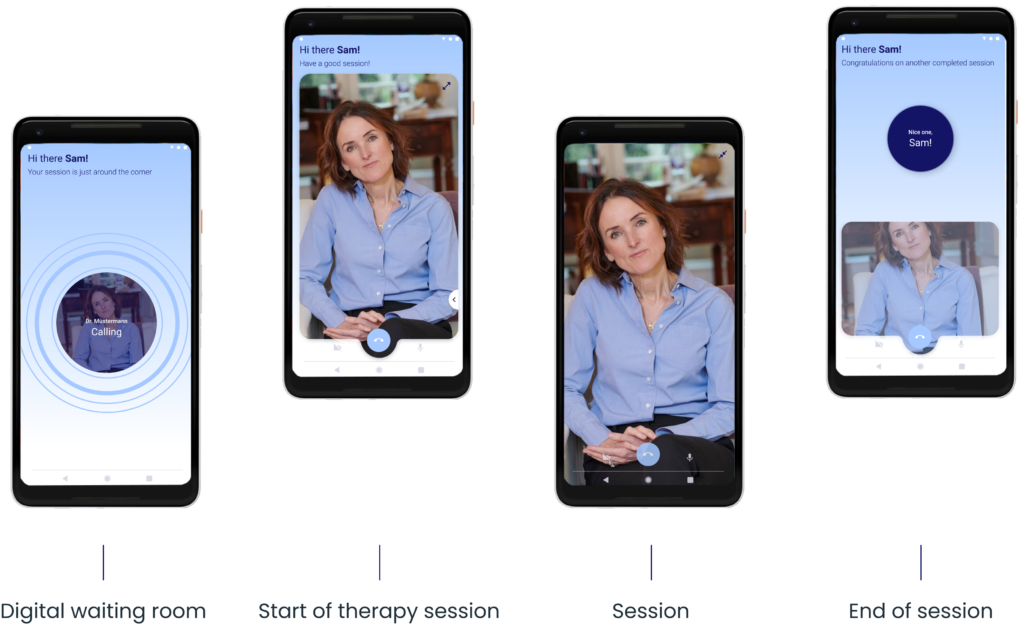

6. One important Takeaway
The „One important Takeaway“ function is designed to provide the patient with a way to record important insights from the therapy session, reflect on how the session went, and provide feedback on the session to themselves and also to the therapist so that they can address this the next time.
The associated action field is intentionally not part of the process circle, as the patient should be left free to reflect on their session when and how they wish. The patient can stay in the car, reflect on the way or combine this reflection work with another pleasant activity like having coffee.
Since time and place for reflection remain open, appropriate input methods must also be provided. Of course, there is the classic keyboard input function, but also the possibility to dictate something to the app. In terms of functionality, this is similar to recording a voice message, which is a natural way for many people to send information or messages on the go.
